Bradley Cooper Sparks Debate After Rumors of Salary Disparity with Co-Star Emerge — Producers Weigh In
Ariana Grande and Cynthia Erivo are trending online after the release of their new film. While both have shared personal reflections, Erivo gave a heartfelt look into the inspiration behind her character portrayal.
Ariana Grande and Cynthia Erivo star in Wicked: Part One, the first installment of the two-part adaptation of the beloved musical, earning praise for their performances as iconic theater characters. However, rumors of a pay disparity between the actresses have stirred online discussion.
The film reimagines the story of Elphaba and Glinda, two young women at Shiz University in the Land of Oz who begin as rivals but form an unexpected friendship. Their bond is challenged when a life-changing encounter with the Wonderful Wizard of Oz sets them on diverging paths.
As they took on these transformative roles, Ariana Grande and Cynthia Erivo shared personal reflections that enriched their connection to the project. In a heartfelt joint interview with Entertainment Tonight ahead of the film’s November 2024 release, Grande became emotional as she explained her decision to use her full name, Ariana Grande-Butera, in the credits.
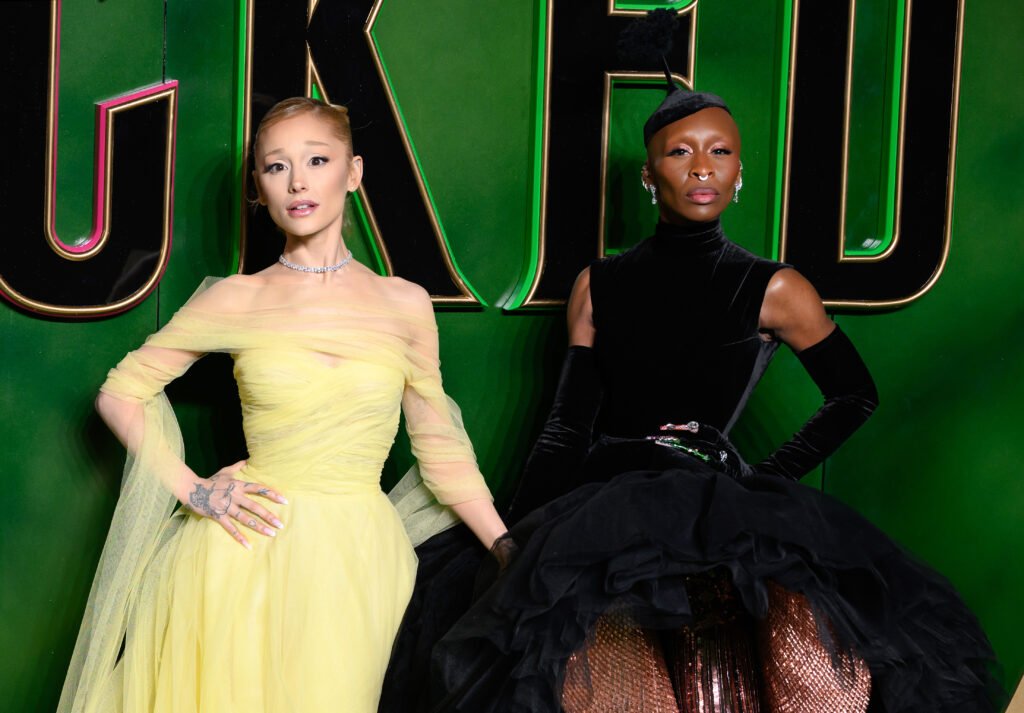
When asked about her father’s reaction, Grande shared emotionally, “He cried,” her voice trembling as she held Erivo’s hand. She explained that reclaiming her full name, which she had as a child when she first saw Wicked, was a journey of self-discovery. It helped her reconnect with a part of herself she felt had been lost in the entertainment industry.
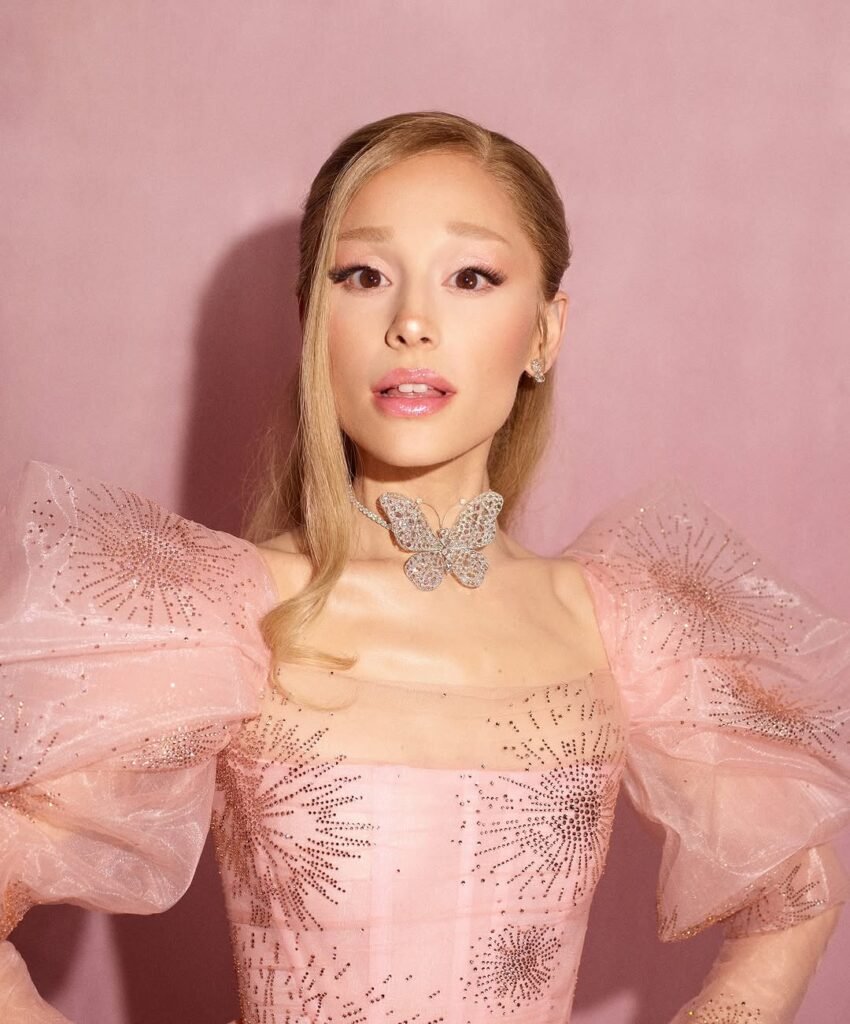
Grande expressed deep gratitude for how the project allowed her to reconnect with her roots, highlighting the emotional journey of self-discovery it inspired. Her heartfelt connection to her role was mirrored by Erivo’s reflections on the profound experience of portraying Elphaba.
Both actresses infused their characters with deeply personal experiences, enriching the film’s exploration of identity and acceptance with layers of authenticity.

Erivo tearfully reflected on how playing Elphaba resonated deeply with her own experiences of feeling out of place. “I know what it feels like not feeling like there is a room for you,” she shared, describing the role as a “wonderful opportunity” to channel her vulnerability into her performance.
She expressed how meaningful it was to know her portrayal could comfort others who feel the same. “It feels like a bit of a hug for anyone who feels that way,” Erivo said, highlighting the universal impact of Elphaba’s story.
In a separate interview, Erivo reflected on Elphaba’s powerful declaration upon arriving at Shiz University: “Yes, she’s green, she’s not seasick, no, she didn’t eat grass as a child, and she’s always been green.”
She expressed deep admiration for these lines, saying, “I really love those lines… it immediately takes the ownership of who she is and what she is.”
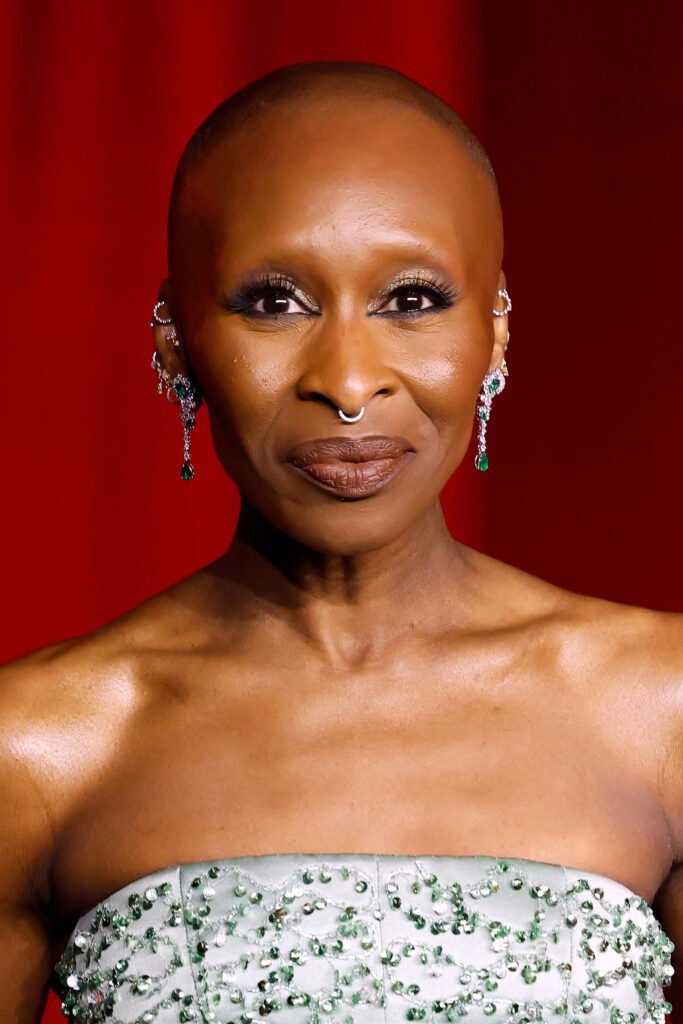
Elphaba’s confident conclusion, “‘and yes, I’ve been green my whole life,'” deeply resonated with Erivo, who saw it as a reflection of her own journey to embrace her identity, including her queerness.
“That quiet confidence… is something that I really wanted her to have,” Erivo explained, emphasizing the pride Elphaba embodies in owning who she is.
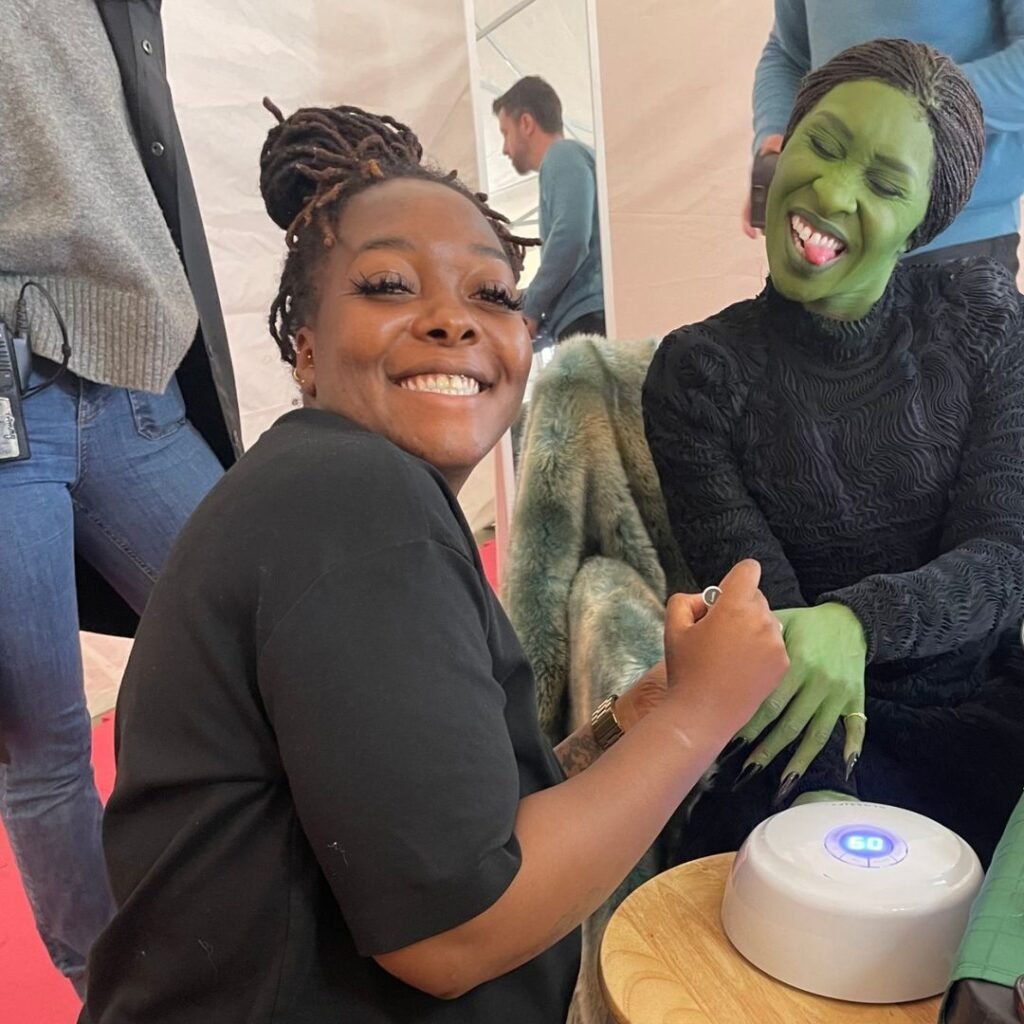
“I’ve had some time to reckon with the skin I’m in…to really own who I am,” Erivo shared, explaining how embracing her true self inspired her portrayal of Elphaba.
Her connection to Elphaba’s identity and resilience not only resonated with Erivo but also with audiences, who found new depth and relatability in her performance. On X, users shared their thoughts, praising how her portrayal brought a fresh perspective to the character.
One user remarked, “Elphaba being played by a Black woman added depth and relatability to her character!” Another responded, “Elphaba’s life experience mirrors the reality for many Black women as well as anyone else who’s been made to feel they don’t belong or been punished for the sins of others.” A third user emphasized, “You really gotta give it to a Black actress—Elphaba’s story is rooted in themes of racism.”
The audience’s embrace of Erivo’s portrayal underscores the ongoing importance of diversity in casting, a subject that Alexia Khadime, the only Black actress to play Elphaba full-time in Wicked on London’s West End, has also discussed.
Alexia Khadime shared her experience of facing racism while playing Elphaba, recalling being accused of “taking away white roles.” She drew parallels to similar backlash faced by Black actors in other iconic roles, describing the criticisms as “silly and ridiculous.”
Building on this dialogue, Erivo recently spoke out against fan-made alterations to a Wicked film poster that distorted her portrayal of Elphaba, adding another layer to the ongoing conversation about race and representation in casting.
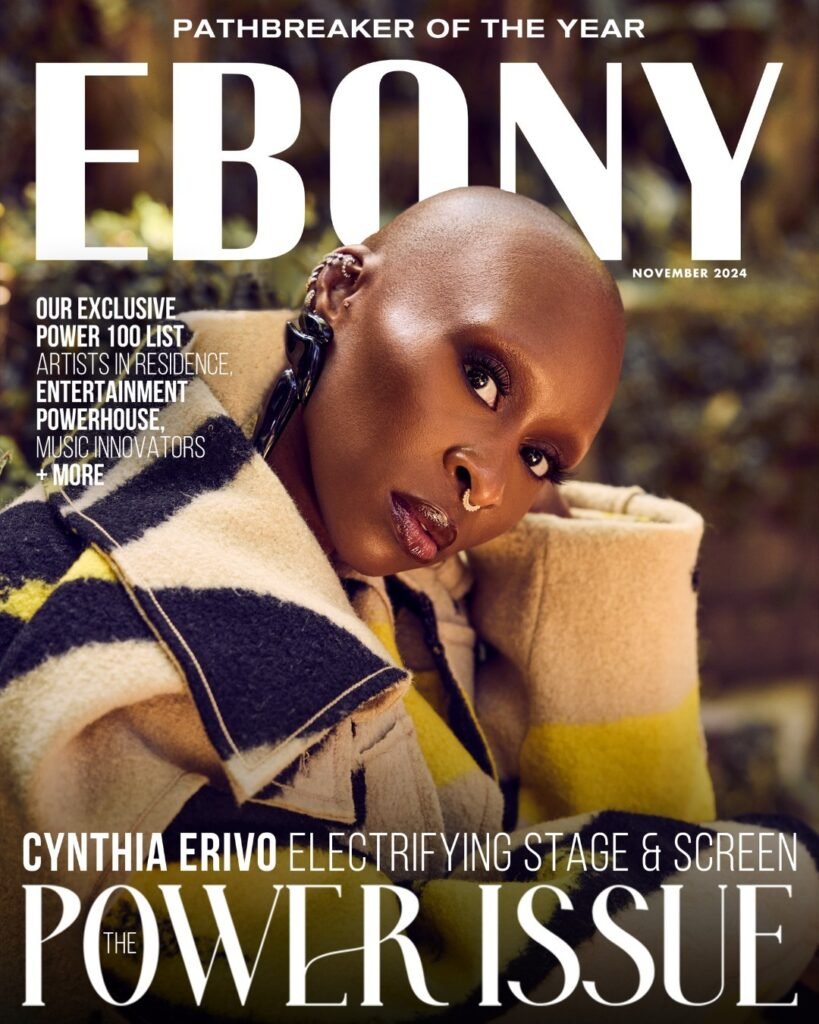
Fans had photoshopped Erivo’s image to resemble the Broadway version of Elphaba, lowering her hat and adding bold lipstick. Erivo described the alterations as degrading and deeply hurtful.
“I am a real life human being… to edit my face and hide my eyes is to erase me,” she wrote, emphasizing that the poster was intended as an homage, not an imitation.
While acknowledging she had “a human moment” in her reaction, Erivo stood by her statement, emphasizing how such alterations diminish both her work and her identity.
Her candid response to the altered poster reflects her broader fight for recognition and respect in her role, a struggle further complicated by rumors of a significant pay disparity between her and Ariana Grande.
The controversy intensified when a TikTok user claimed that Ariana Grande earned $15 million for the film, while Cynthia Erivo received only $1 million, despite having “identical roles.” The user also alleged that other co-stars were paid $2 million each and pointed to Erivo’s extensive credentials, including a Grammy and an Emmy, to argue that the pay disparity was unjust.
Another TikTok user suggested that Ariana Grande’s higher pay was due to her massive fanbase, arguing that her name alone would draw fans to the cinema. However, the user also acknowledged the unfairness toward Cynthia Erivo, emphasizing that she is a highly accomplished and credible star in her own right.
One user found the disparity laughable, pointing out that Erivo had the more demanding role, as she performed her own stunts, unlike Grande, and spent more time on set. This added another layer to the conversation, with many questioning whether the effort and dedication required for the roles were fairly reflected in their compensation.
The conversation about the alleged pay disparity between Ariana Grande and Cynthia Erivo spilled onto X, where users shared a mix of frustration and support for Erivo.
One user harshly claimed, “She has no skills and forgets that Americans made her famous,” referring to Grande. Others weighed in on the fairness of the pay gap, with one writing, “Who is Cynthia?? That’s why!” while another added, “Ariana will bring all the watchers!”
Several comments on X called for equity, with one stating, “They should have gotten paid the same!” and another suggesting, “The max pay gap should be $1 million.” One user summed up the divide by saying, “She’s more famous and has a huge army of fans who will watch because their favorite singer is in it.”
Despite the heated online debate, it was later confirmed that there was no pay disparity between Erivo and Grande. A Universal spokesperson addressed the rumors, stating, “Reports of pay disparity between Cynthia and Ariana are completely false and based on internet fodder. The women received equal pay for their work on Wicked.”
Insiders confirmed to The Hollywood Reporter that both Ariana Grande and Cynthia Erivo were paid equally for their roles in Jon M. Chu’s Wicked, dispelling the widespread speculation and resolving the controversy.
This confirmation of equal pay settles the debate, shifting the focus back to the remarkable talent both actresses bring to the film. Their performances highlight the importance of representation and artistry in cinema.




